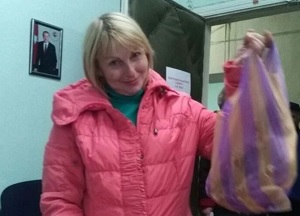Advancing Organic Agriculture with German Precision: A New Era for Turkish Exports
Turkish Organic Exporters Aim to Become Europe's Top Supplier

Advancing Organic Agriculture with German Precision: A New Era for Turkish Exports
Turkish Organic Exporters Aim to Become Europe's Top Supplier
Germany Seeks to Enhance Trade in Organic Products with Turkey
YEREL GÜNDEM / İZMİR
The trade relations between Turkey and Germany continue to strengthen, underscored by the recent German-Turkish Economic Day on Food event, co-hosted by the Federal Republic of Germany’s Embassy in Ankara and the Aegean Exporters' Associations. This event, followed by B2B meetings, paved the way for new business opportunities between Turkish and German firms.
Germany, one of Europe's largest food importers, shows significant interest in expanding trade in organic products with Turkey. Ralf Schröer, the Consul General of the Federal Republic of Germany in Izmir, highlighted Turkey's robust agricultural production and growth potential. He noted the high demand for gluten-free and sugar-free products, saying, “Turkey is a vital market for gluten-free and sugar-free foods. In Germany, establishments over 250 square meters are now required to offer gluten-free options, presenting a significant opportunity for Turkey.”
Jak Eskinazi, Coordinator Chairman of the Aegean Exporters' Associations, emphasized the importance of Germany as a key trade partner, with bilateral trade volume reaching $50 billion. “In 2023, Turkey exported $21.079 billion worth of goods to Germany. Our annual food exports to Germany amount to $2 billion, which we believe does not fully reflect our potential. We know the potential is much greater and are taking steps accordingly,” Eskinazi stated.
Mehmet Ali Işık, Coordinator of Organic Products and Sustainability for the Aegean Exporters' Associations, underscored the role of German precision in the success of Turkey’s organic agriculture exports. “We started our organic agriculture with the discipline of German certification bodies, which forms the basis of our successful cooperation. Following the pandemic, German Agriculture Minister Cem Özdemir announced a plan to increase organic production in Germany and the EU by 30%. Our priority is to maintain sustainability in healthy food production,” Işık said.
Dr. Başak Egesel, Head of the Department of Ecological Agriculture at the Turkish Ministry of Agriculture and Forestry, highlighted the priority given to organic farming in Turkey, aligned with the European Green Deal. “A new system will ensure control reports are entered into the Organic Agriculture Information System, followed by the issuance of digital certificates. This will enhance traceability, especially for products like dried fruits, hazelnuts, grapes, and figs, which are prominent in our trade with Germany,” Dr. Egesel explained.
Okan Özoğlu, Secretary General of the Turkish-German Chamber of Commerce and Industry, called for the update of the Customs Union and emphasized the need to address logistical challenges. “One of the most crucial issues is ensuring chemical residue-free products. Embracing controlled agriculture through cooperatives is essential. In Italy, cooperatives ensure the cold chain from the field to global markets. We need a stronger cooperative infrastructure in Turkey,” Özoğlu remarked.
Deniz Eriten, Representative of the German-Turkish Chamber of Commerce and Industry (AHK) in Izmir, underscored the importance of networking efforts to boost trade between the two nations, bringing together industry leaders.
Turkey’s strides in organic agriculture, guided by German precision, are setting the stage for a leading position in the global market. As Turkish organic exporters aim to become Europe’s top supplier, the collaboration with Germany promises to elevate standards of sustainability and quality, making a significant mark on the world stage.






































